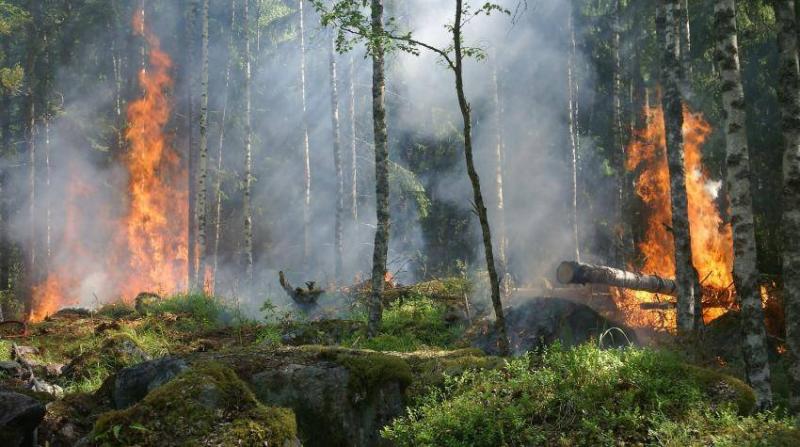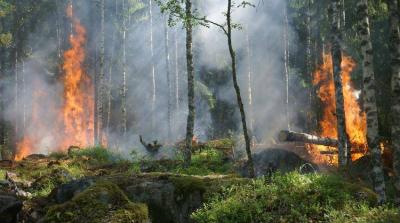A study has found that "smoke from wildfires may be worse for brain health than other types of air pollution and is associated with an increased risk of dementia." The results, reported on Monday at the Alzheimer's Association International Conference in Philadelphia, come at a time when millions spent the weekend under air quality warnings due to wildfire smoke blanketing parts of the western United States.
The issue lies in fine particulate matter, or PM2.5, which consists of tiny particles about 30 times smaller than a human hair that can be inhaled deep into the lungs and enter the bloodstream. Pollution from traffic, factories, and wildfires can cause or exacerbate heart and lung diseases, and the new study adds to the growing evidence regarding the role of pollution in dementia.
Researchers tracked the health records of 1.2 million older adults in Southern California between 2009 and 2019. They used air quality monitoring and other data to estimate residential exposure to PM2.5 particles from wildfire smoke and other sources over three years. The study found that the odds of a new dementia diagnosis increased by approximately 21% for each 1 microgram increase in wildfire particle concentration, compared to a 3% increase in risk for each 3 microgram increase in non-wildfire particles.




